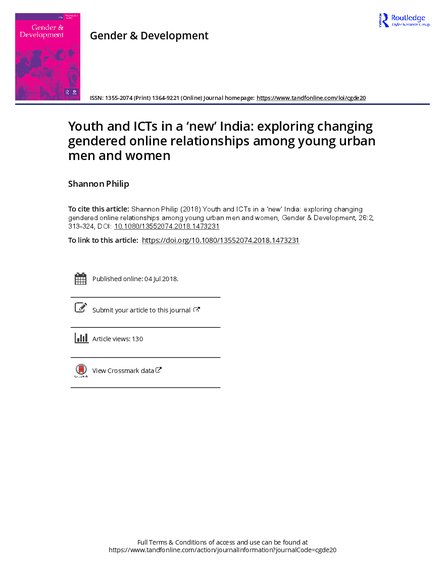
Like many countries in the global South, the rise and widespread accessibility of information and communication technologies (ICTs) in India have profoundly changed the lives of young people and impacted the dynamics of their gendered relationships. Millions of young people in India now have access to new opportunities and novel ways of communicating and interacting that a previous generation of Indians did not. From the perspective of gender justice and gender equality, these changes have led to many positive developments between women and men. However, they have also led to the reproduction of patriarchal social norms within ICTs and, in some cases, to a further reinforcement of gendered inequalities. This article explores these dual and contradictory shifts caused by the widespread access to ICTs among young middle-class people in India, and considers how while ICTs in India are providing new and important opportunities for young people to interact freely across genders in more egalitarian ways, they can also lead to greater online misogyny.
Links
Resource collections
- UN Habitat - Urban Response Collection
- Urban Response - Urban Crisis Preparedness and Risk Reduction
- Urban Response Collection - Community Engagement and Social Cohesion
- Urban Response Collection - Economic Recovery
- Urban Response Collection - Environment and Climate Change
- Urban Response Collection - Housing, Land and Property
- Urban Response Collection - Urban Crisis Response, Recovery and Reconstruction
- Urban Response Collection - Urban Resilience